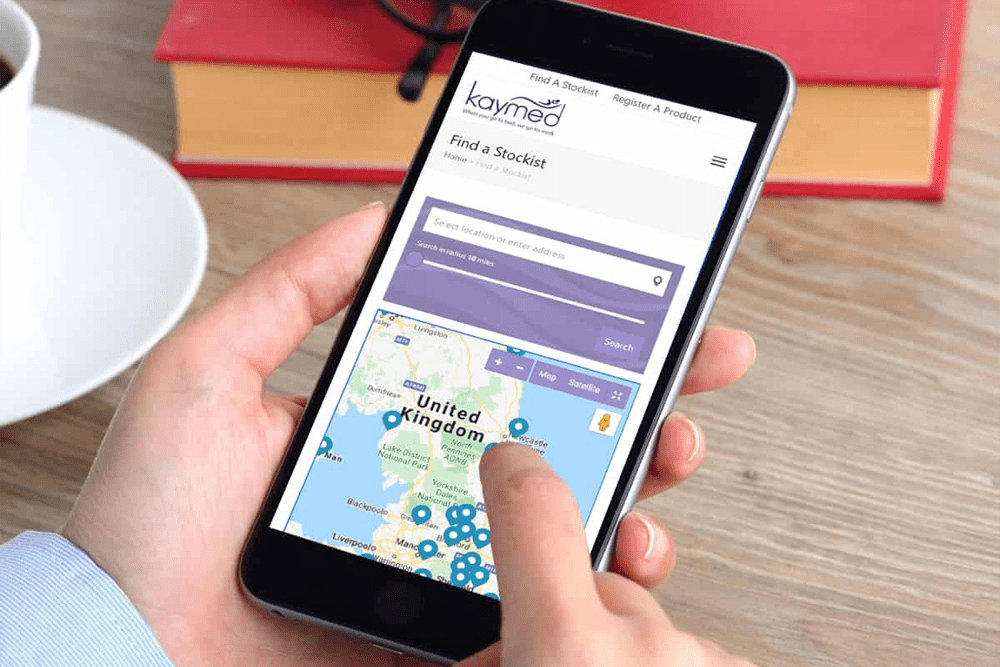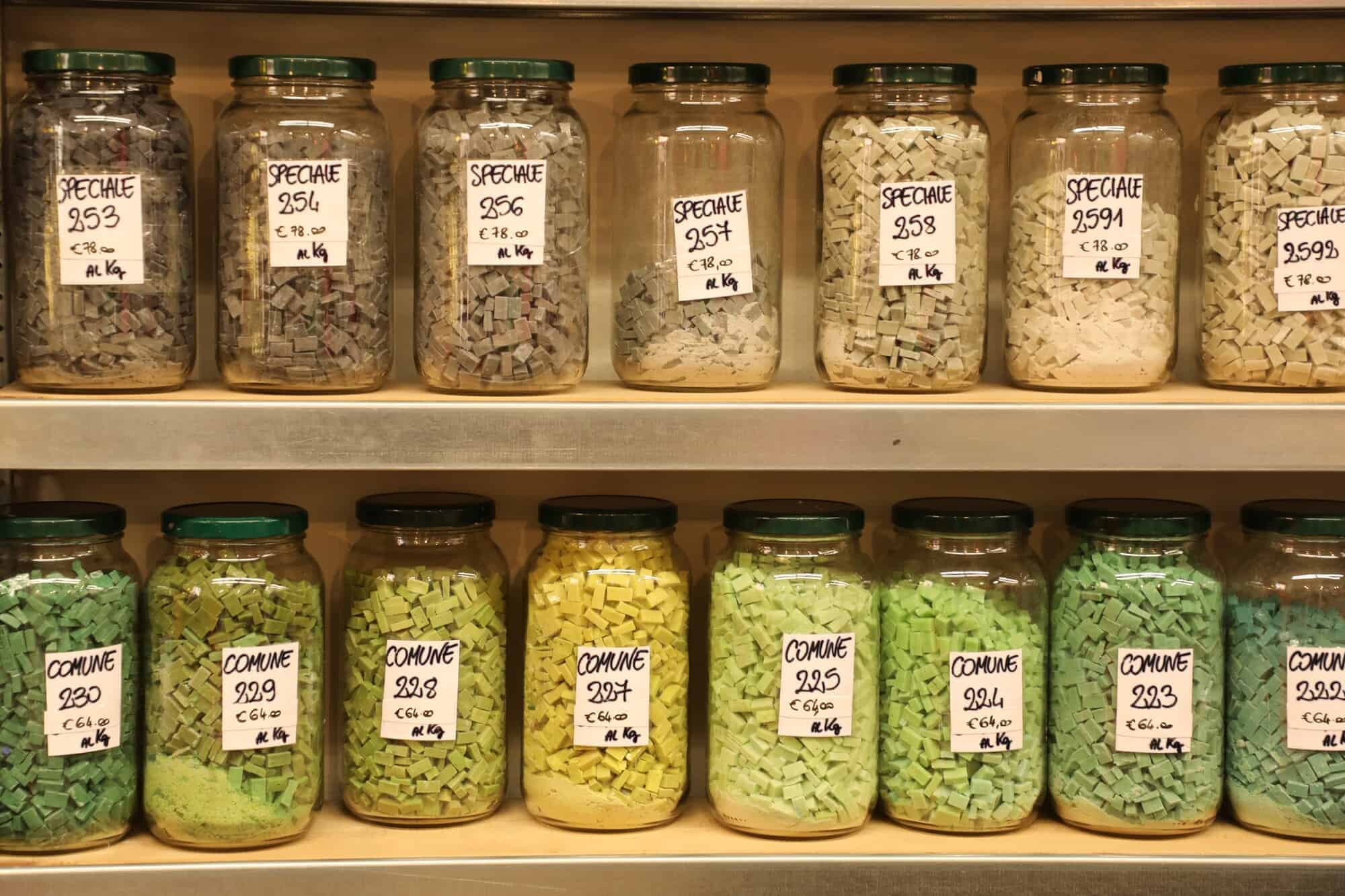Marketing Differentiation And Its Importance
Marketing differentiation refers to the process of distinguishing a company’s products or services from those of its competitors. It is an important strategy for businesses to create a unique brand image and gain a competitive advantage in the marketplace.
This article will explore the importance of marketing differentiation and how it can help companies to stand out in a crowded market. By understanding the concept of marketing differentiation and its benefits, businesses can develop effective marketing strategies to attract and retain customers.
Marketing differentiation is a crucial element of a successful business strategy. It involves distinguishing a company’s products or services from those of its competitors, making it stand out in the marketplace. In today’s highly competitive business environment, marketing differentiation is more important than ever. Companies that can effectively differentiate themselves from their competitors have a greater chance of attracting and retaining customers, increasing market share, and achieving long-term success.
One of the main benefits of marketing differentiation is that it allows a company to create a unique brand image. A strong brand image can help a company to establish itself as a leader in its industry, and can also make it easier for customers to remember and recognize the company. Additionally, a strong brand image can help to build customer loyalty, as customers are more likely to return to a company that they trust and feel positively about.
Another benefit of marketing differentiation is that it can help a company to charge a premium price for its products or services. If a company can successfully differentiate itself from its competitors, it can justify charging a higher price for its products or services, as customers are willing to pay more for something that they perceive as unique or superior.
Marketing differentiation can also help a company to attract new customers. By offering unique products or services, or by positioning itself differently in the marketplace, a company can appeal to customers who might not have considered its competitors. Furthermore, by differentiating itself, a company can also create new market segments and attract customers who are looking for something specific.
In order to effectively differentiate itself from its competitors, a company must first conduct market research to understand the competitive landscape. This research should include an analysis of the company’s competitors, their products or services, their pricing strategies, and their target market. Once a company has a clear understanding of its competition, it can develop a differentiation strategy that is tailored to its specific industry and target market.
Want to pick up the phone and speak to us about your Website project?
Call us on: 01733 361729 mail: solutions@bdolphin.co.uk
Two approaches to differentiation
Differentiation in marketing means creating specialised products or services that gain competitive advantage with a particular segment of the market. Companies can choose from two different strategies: differentiation, and differentiation focus.
- Differentiation adds specialised aspects with a broad appeal to its products or services.
- Differentiation focus develops a product that appeals to a niche market.
In either case, differentiation makes a product or service more desirable to the target market
Practical Differences Between the Differentiation Strategies
A larger company with high market share has the opportunity to provide improved products or services that appeal to a broad audience. E.g., a large construction company – like Kier is able to purchase higher quality goods by purchasing larger amounts of them could provide quality products at a reasonable price. This would probably appeal to a wide market.
Charging a premium for an exceptional product or service, such as Audi does, is another option. Aiming to have outstanding customer service in the automotive industry, or the most convenient or energy efficient products would also lead to broad practical appeal.
Differentiated Segmentation Strategy
Segmenting your market means selling to a specific target audience or audiences using one of several different methods. The method known as differentiated segmentation strategy, involves targeting more than one group of buyers, but not all potential buyers, tailoring your product, benefits, distribution, price or brand message to maximize their interest.
Market Segmentation
Companies segment markets by creating a service or product that appeals more to some groups than others. For example, rather than selling a range of dog products that appeal to all dog breeds, a company might create a range specifically for Miniature Schnauzers An accountancy firm might specialize in sole trader work. Some businesses segment the market by modifying a product or service to appeal to a certain age group or sex, or to consumers in a specific life stage, such as retirees or parents.
Single-Segment Strategy
Many companies segment the market by specialising and targeting only one segment of the market, known as concentrated segmentation. Whilst this results in a smaller potential customer base to target, it can generate more sales from the people / businesses in this this group. These members believe the business as a specialist provider is the best company to satisfy their specific needs. For example, a manufacturer might focus on making conveyors for the food sector. This could be further niched by only making conveyors for the Chicken processing sector. Whereas generalist conveyor manufacturers of conveyors for automotive, distribution, airports, industrial and food.
Differentiated Segmentation Strategy
Selling to two or more specific market segments is classified as a differentiated marketing strategy. This allows you to increase your potential customer base, sales, revenues and profits. Doing so increases your costs, because you’ll need to use tactics such as creating different marketing messages, using different distribution channels, setting different prices, modifying your product or offering different products.
For example, a company that manufactures folding bikes can create a differentiated segmentation strategy by offering a basic low spec option as a lower cost model to pursue the first time folding bike market segments. It could offer a higher quality, enhanced specification model for those who already have the folding bike bug.
Advantages and Disadvantages
The main benefit of pursuing different types of customers is that it helps you expand your sales potential.
If you make a product or offer a service and aren’t running at full capacity, adding another target market can help you operate at full capacity.
On the down side, when the same company sells into two or more markets, it can confuse consumers as to what the company really is. For example, if a commercial electrician offers domestic and commercial services under the same business name, domestic consumers might be less willing to take a chance on purchasing a service from this company. This is why car companies such as the Volkswagen Group, which owns Skoda, VW and Audi, sell an affordable car under one brand name (Skoda), mid range under another name (VW) and a luxury car (Audi) using a different brand. Some may be surprised to learn that VW also owns Lamborghini ( the specialist high performance brand ) .
Vertical and Horizontal Segmentation
As discussed earlier segmentation is a marketing technique used by businesses to target a specific type of consumer or section of the marketplace.
- Horizontal segmentation means selling a product to a wide spectrum of consumers,
- Vertical segmentation narrows your selling focus to target consumers in a smaller demographic. (think of drilling down vertically)
Vertical Segmentation
Segmenting the marketing vertically means picking a specific niche and trying to brand yourself as a product or service that specialises in that niche.
For example, a loading shovel attachment manufacturer might sell only high tip buckets, aiming to attract more business from companies who want the best quality and service when it comes to high tip buckets . A website developer might start a market segmentation process that begins with the decision to create websites tailored for the manufacturing businesses, rather than service providers. It might then decide to create a vertical segmentation strategy by making websites specifically for a specific type of manufacturing business, such as engineering or machine builder companies.
Horizontal Segmentation
Some nonmarketing professionals confuse vertical segmentation with horizontal segmentation based on the fact that a business might target only a section of the marketplace.
For example, a conveyor manufacturer marketer might specialize in incline and decline, but sell only food incline and decline conveyors. If the company sells conveyors for food, airports, retail and distribution applications, the company would segment the market horizontally by selling across a variety of industrial categories. If it only sold incline and decline conveyors, the target marketplace, food would result in a vertical market segmentation.
Benefits
Selling vertically helps you improve your brand image among specific groups, which might allow you to increase your prices or sell more items in a smaller marketplace.
Once your brand is established, you might diversify your product line. For example, a conveyor manufacturer who starts out making only conveyors for the food sector might be able to use the brand image it has developed among the food industry to sell X-ray Units, Metal Detection, Robotic arms i.e. associated products.
Marketing Differentiation And Its Importance In Sales
Marketing Differentiation Why Is It Important
Are you fortunate to have NO competitors
In an ideal world you would be the only company who supplied the product or service that you are providing. That way when a customer or prospect comes to you and requests your product or service you don’t have to worry about
- The pricing that you apply. With no competitive products if a customer can afford your product and wants to buy it why would they worry about price
- The quality :if yours is the only product then direct comparison is difficult.
- Where you are located: If people want what you offer and there is nobody else to provide it, then customers / prospects will make an effort to find you
- The package : What you actually provide in the product you deliver, in terms of additional product features or extras
If you don’t have any direct or indirect competition then happy days make sure that you maximise profits before things change (the future competition)
- Direct competition: companies offering exactly the same product or service as you
- Indirect competition: companies who offer a different product or service to you but are competing for your money
- Future competition : companies / products that are being developed that will transform the way that a customer purchases in the future
What if you have direct competition
Unfortunately most companies have direct competition so what is the best way to compete
- Price: you could be the cheapest but do you have the lowest costs and by being the cheapest will you be able to make a sustainable profit
- Quality: You could offer the highest quality (unlikely that you will be the cheapest now), or you could offer the lowest quality (unlikely that you will get repeat customers)
- Location: make sure you are located where its easy for your customers to find you. That could be your physical location or being easily found on the web.
- Package: you could do things differently as you provide the product / service that are of value and importance to the customer but don’t actually add (significantly) to your direct costs. Importantly you need to understand what is important and of value and then communicate it
The picture of a vending kiosk in New York, shows part of the differentiation process. There stall is different to the hundreds of other street vendors ‘we are different’ unfortunately the product offering and service didn’t match the expectations. So publishing that you are different when you are not, probably wont work as a long term promotional strategy. A great sales and marketing question to ask yourself that helps with the differentiation challenge is “Why should I buy (whatever you sell) from you”.
Marketing Differentiation And Its Importance In Sales – Struggling to identify what makes you different?
If you are struggling to establish what makes you different then give click here a call on 01733 361729 where we can use our unique ‘Marketing Differentiation Tool’ to help you identify what makes you different.
Akbars Leeds A Fantastic Customer Experience & Example Of Great Marketing
I recently took my family out for a celebratory special occasion meal. As we were combining this with a visit to Leeds it made perfect sense to go to an Indian restaurant that had been recommended to us called Akbars Leeds in Greek Street, Leeds.
Now lets look at what I think are some of the great marketing activities that we can all learn from
- Referral: I was recommended to go there by a friend who himself had been recommended (I have no idea how far back the chain goes) as a result of this recommendation we didn’t even checkout if there were other great curry houses local to us
- Busy: We arrived at the restaurant at 6.30pm on a Saturday evening. We were greeted at the door by a very hospitable lady who informed us that they were very busy and for a table of five we would have to wait 30 minutes. The restaurant was absolutely buzzing with diners who appeared to be having a great time. So at this point we promptly made use of the bar area to grab a pre meal drink. The fact that the restaurant was already busy was a great sales tool. Did we really want to find a restaurant that was empty where we could eat immediately?
- Akbars Leeds have some hero products. Whilst we were waiting we observed the food coming out of the open to view kitchens. From the image you will see one of the hero products the “Family Nan” what a mugs eyeful. It tasted even better than it looked. The taxi driver who took us to the restaurant recommended the lamb chops (which were outstanding) as he said they were legendary
- Great Food: When the food arrived I can honestly say the Apna style curry was the best curry I have ever had. everyone else in the group though that the food was brilliant
- Great Service: The waiters, The food servers were all very attentive and very personable. No robotic sayings just very attentive personal service
Akbars Leeds The Marketing Case In Summary
- A great marketing case study
- I have no idea what there website is like (they may not have one) never even looked for it
- The product in terms of food was not only outstanding to us it represented great value for money
- The restaurant understood the importance and value of customers and provided a service to suit
- I will tell friends the Akbars Leeds story and recommend them as a very happy customer, and will have no hesitation re visiting next time I’m in Leeds
For a great curry visit Akbars Leeds for great marketing advice checkout the Blue Dolphin website
Marketing Differentiation – Summary
Marketing differentiation refers to the process of creating a unique and distinct identity for a product, service, or brand in the market. It involves positioning and presenting the offering in a way that sets it apart from competitors and gives it a competitive advantage. The purpose of differentiation is to communicate and deliver unique value to the target audience, thereby attracting customers and fostering brand loyalty.
Marketing Differentiation is important for several reasons:
- Competitive Advantage: In a crowded marketplace, differentiation helps a product or brand stand out from the competition. By offering something unique, whether it’s a feature, quality, or benefit, a company can gain a competitive edge and attract customers who are seeking that specific value proposition.
- Customer Attraction: Differentiation helps to capture the attention and interest of potential customers. When consumers perceive a product or brand as distinctive, they are more likely to pay attention, consider it, and potentially make a purchase. Unique and compelling differentiation can create a strong initial impression and generate curiosity and desire.
- Brand Building: Effective differentiation contributes to brand building and brand equity. When a product or brand consistently delivers on its unique value proposition, it builds a reputation and identity in the minds of consumers. Over time, this can lead to customer loyalty, positive brand associations, and increased market share.
- Increased Perceived Value: Differentiation can enhance the perceived value of a product or brand. When customers perceive a unique offering that aligns with their needs, they are often willing to pay a premium price. Effective differentiation can justify higher prices and increase profitability.
- Targeting Specific Market Segments: Differentiation allows companies to target specific market segments or niches. By tailoring the product or brand to meet the specific needs and preferences of a particular group, companies can create a loyal customer base and establish themselves as experts in that segment.
- Long-Term Sustainability: Differentiation helps protect a company from being easily replicated or commoditized by competitors. If a product or brand is unique and difficult to imitate, it creates a barrier to entry, reducing the threat of new entrants and maintaining a sustainable competitive advantage.
Overall, marketing differentiation is crucial for companies to effectively position their products or brands in the market, attract customers, build strong brand equity, and achieve long-term success. By offering unique value and standing out from the competition, businesses can differentiate themselves and create a compelling reason for customers to choose their offerings over others.







